It’s a common sight these days – images of beaches around the world choked in plastic; marine wildlife strangled, deformed or trapped by plastic, whales washing up on our shore with tummies bulging with non-biodegradable waste. Our planet is begging us to turn plastic free.
The growing levels of plastic waste are becoming unmanageable. It’s something we can’t ignore any longer. Plastic pollution has siezed the attention of the world.
With many countries and major cities taking steps to cut down single-use plastic, it’s time to start thinking about how you can start to make a small yet significant change to your everyday routine.
With plastic-free alternatives on the rise, making plastic free swaps is super simple. Here’s 13 for right now!
-
Reusable Water Bottle
In the UK, we use 38.5 million plastic bottles every day, only half of which make it to recycling! And even then, only 7% of recycled plastic bottles collected are turned into new bottles. All the rest end up in landfill or in our oceans, where they leach chemicals and harm wildlife.
Using a reusable bottle is one of the easiest changes we can make in our everyday lives that has a huge impact. From metal, glass and copper bottles, there is a big range of reusable water bottles to choose from. We love Chilly’s convenient and stylish designs.
If you live in the UK, check out Refill – a campaign that uses water droplet stickers on windows of cafes, pubs, restaurants, shops and venues to show that they are happy to refill your water bottle for free!
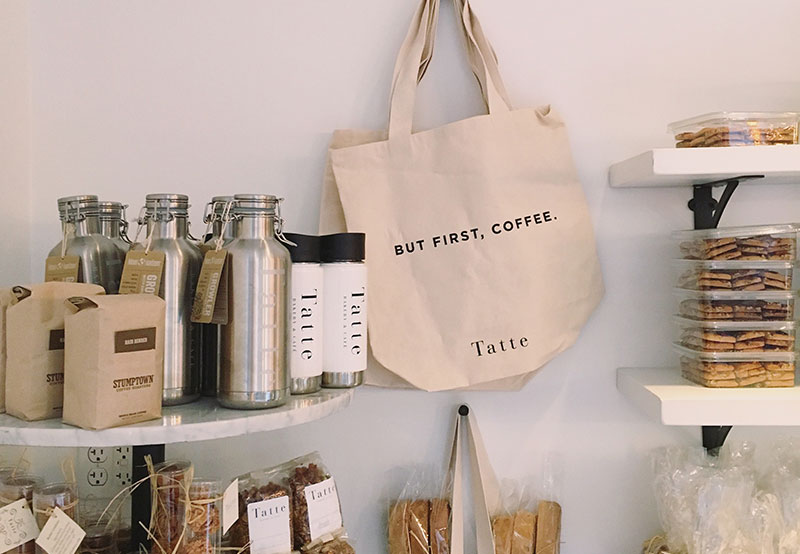
-
Reusable Coffee Cup
Another great place to start off annihilating plastic from your routine is with your morning cuppa.
2.5 billion coffee cups are disposed of every year in the UK. The worst part? Less than 1% is recycled. Disposable coffee cups are made from paper lined with plastic. They can only be recycled in specialist recycling plants, of which there are very few in the UK.
On top of that, coffee cups are also made from virgin paper pulp. Trees have been cut down for the sole purpose of producing a product with a lifespan that is no longer than it takes for a hot drink to go cold.
With so many reusable coffee cups on the market, there’s no excuse not to use one. It’s time to make this simple swap, cut down on our waste, and protect the environment.
-
Cutlery and Straws
Did you know it takes up to 200 years for plastic straws to decompose? In England, it’s estimated that we use 4.7 billion straws every year. Do the maths on that!
Thankfully, much like plastic cutlery, many countries have begun to take steps towards banning plastic straws.
Whether it’s at a festival or while you’re running errands, having a reusable cutlery set is an easy way to cut down on plastic waste. Just bring baby wipes with you to give them an on-the-go scrub.
-
Reusable Food Wraps
Have you ever asked yourself if you can recycle clingfilm? We sure have, with no real clue of how to recycle it! Clingfilm is made from low-density polyethene, a type of plastic that is hard to recycle, leaving it to degrade slowly in landfill instead.
When it ends up in our waterways, clingfilm is easily confused by marine life for jellyfish, choking turtles and other sea creatures that feed off them.
If you want to cut out your use of clingfilm, beeswax or organic cotton wraps are a great alternative. They are completely natural, which means no chemicals will leach into your food, and they’ll help to keep your food fresh for longer.
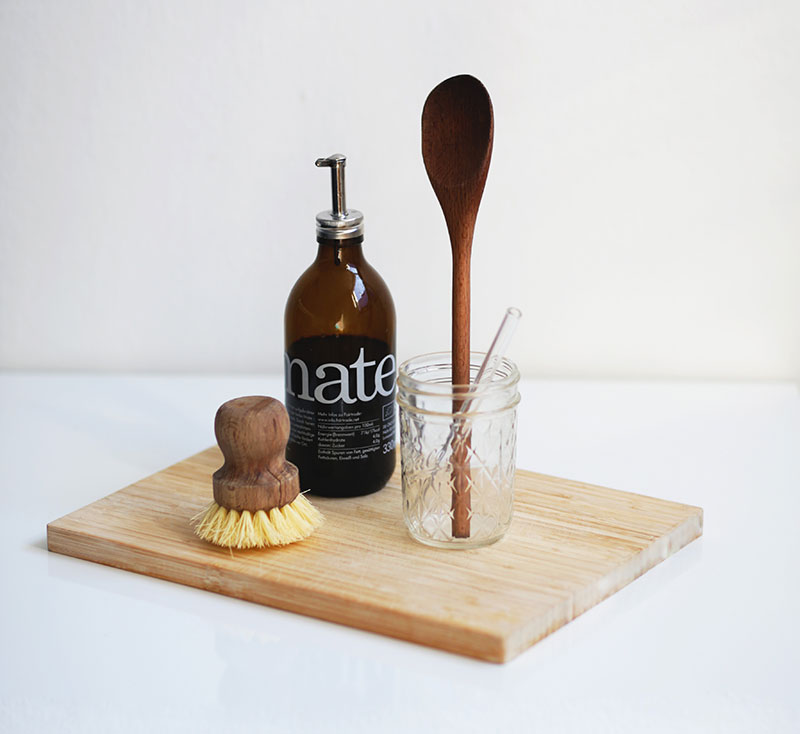
-
Natural Dish Sponge
Most people don’t even give a second thought to everyday items like kitchen sponges, but most are made from cellulose (natural fibres), with the scrubby part made from polyester or nylon. They are non-recyclable, non-biodegradable and are made from non-renewable sources like oil and gas.
Instead, opt for an eco-friendly alternative like a loofah. Not only are they compostable, but they dry faster, last longer and you can microwave them to help kill germs!
-
Wet Wipes
Conventional wet wipes are made from polyethene, a type of plastic. They never fully biodegrade. Instead, they break down into fibres. When they reach a water source, the wipes begin to release micro-plastic that harms fish and other marine life.
Millions of wet wipes are flushed down the toilet in the UK every day. You should never flush wet wipes, even if they’re biodegradable!
Our wipes are made from 100% organic cotton (making them biodegradable and compostable), natural plant-based materials and organic essential oils. They’re free from parabens, alcohol, sodium lauryl sulphate, synthetic preservatives and are Totally Chlorine Free (TCF), which means they are better for your body and the planet.
Check out our full range of our baby, intimate or makeup wipes. We also have a Water UK certified Safe to Flush moist tissue which actually can be flushed.
Cheers to clean bottoms!
And a greener world for everyone with Natracare’s Safe to Flush Moist Tissues.
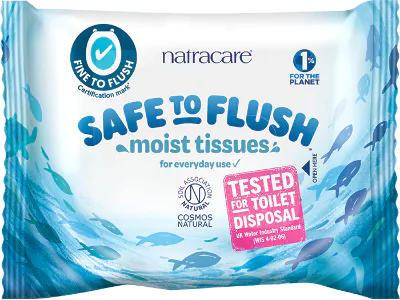
Find out more
-
Toothbrush
How often do you change your toothbrush? Dentists recommend changing them every 3 months, which, if you think about it, is a lot of toothbrushes in one lifetime, equalling to A LOT of plastic thrown away in one lifetime.
Luckily for us, bamboo toothbrushes are a great alternative. Bamboo is one of the fastest growing plants on the planet, which makes it a great sustainable biodegradable material to use instead of plastic.
The majority of bamboo brushes have nylon bristles made from plastic, but there aren’t many alternatives at the moment (unless you want to clean your pearly whites with animal hair). It may not be a plastic free option, but it is a step in the right direction!
-
Toothpaste
Aluminium, plastic, steel… who knew toothpaste tubes were made up of so many different materials? Sure, those materials can be recycled, but each would need to be processed separately. Plus, the fact that it is nearly impossible to squeeze out the last bit of toothpaste from your tube makes it even harder to recycle. Most recycling plants don’t even accept them for recycling.
But fear not! You can still make your teeth shine by making your own toothpaste and keeping it in a recycled glass jar, or you could try toothpaste tablets available on the market.
-
Dental Floss
While we’re talking about dental hygiene, dental floss is next up on our list as a target for reducing your impact on the plastic pollution problem.
Conventional dental floss is waxed nylon (a plastic filament) rolled up into a small plastic box, which often comes packaged in even more plastic. Talk about plastic-ception!
Plastic free dental floss alternatives are made from sustainable sources like bamboo fibre or silk, coated in natural waxes with essential oils to add flavour and freshness.
-
Cotton Buds
Cotton buds are the most common litter flushed from toilets and found on beaches across the UK. About 1.8 billion cotton buds are used every year in the UK, 10% of which are destined for our beaches and oceans.
Our friends at City to Sea created a Switch the Stick campaign to put pressure on major retailers to stop the production of plastic cotton buds and switch to paper-stems instead (they won in 2016!).
Make sure that you choose organic certified cotton to avoid putting any pesticides or other toxic chemicals inside your ear!
-
Makeup Remover Pads
Cotton pads and balls are designed as single-use items, which (surprise, surprise) come packaged in plastic packaging. If you’re not using 100% organic cotton pads, you can bet that harmful pesticides and other chemicals are coming in contact with your skin. You can use organic cotton makeup remover wipes instead.
Reusable makeup cleaning pads are the way forward! Some are made from cotton, some are combined with bamboo, but whichever you choose, you can rest easy knowing you’re leaving a soft footprint on the earth.
-
Period Products
It might come as a shock to you, but conventional period products are filled with plastic and harmful chemicals. You might not even realise what potential impact your period has on the planet.
Whether it’s a menstrual cup or reusable period pants, there are plenty of eco-friendly options to choose from. Or, if you’re not quite ready for reusables, our period products are plastic free, biodegradable and compostable, helping you to reduce plastic waste.
-
Shopping in Zero Waste Shops
You’ve seen it all before – peeled oranges wrapped in plastic, double plastic-wrapped cucumbers, bananas in a Styrofoam tray covered in plastic. It’s as if Mother Nature had not blessed these fruits and vegetables with their very own protective skin!
There are many worldwide initiatives that are starting to bring awareness to the unnecessary use of plastic. The Instagram page Pointless Packaging is aimed at “shaming supermarkets into taking action on pointless packaging.”
Zero Waste Shops are popping up everywhere, shopping in Zero Waste Shops means you’re combatting food waste and putting money back into the local economy.
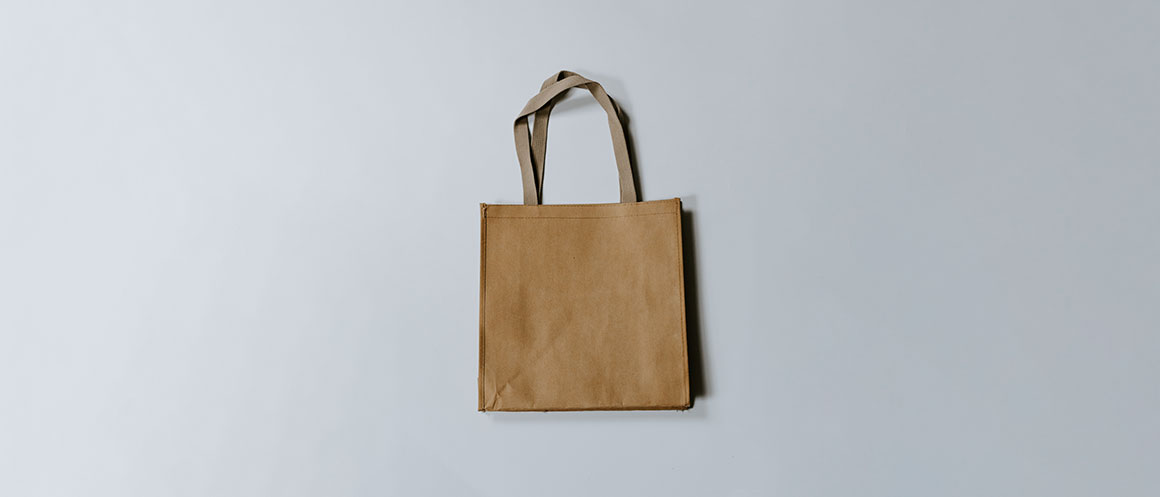
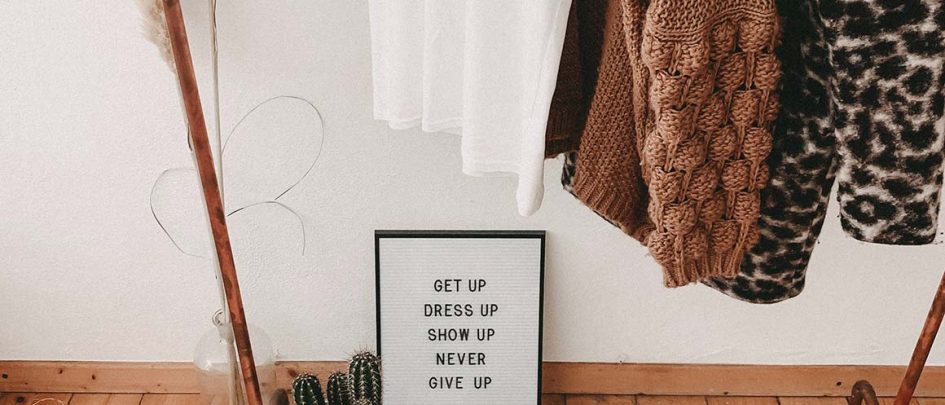
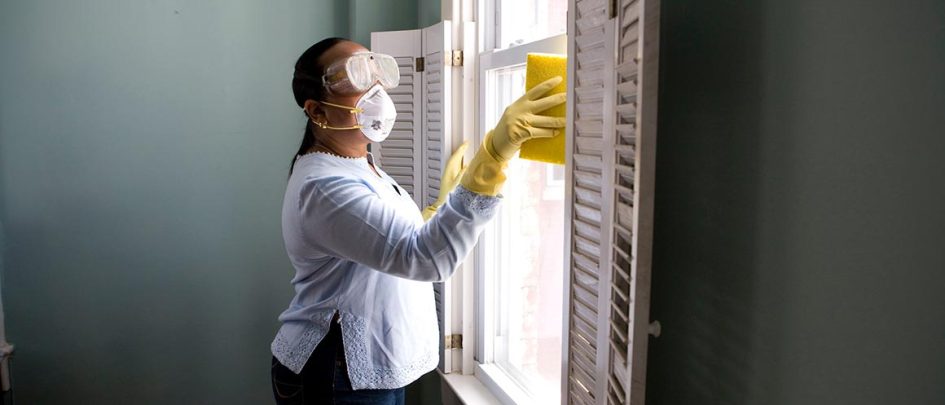
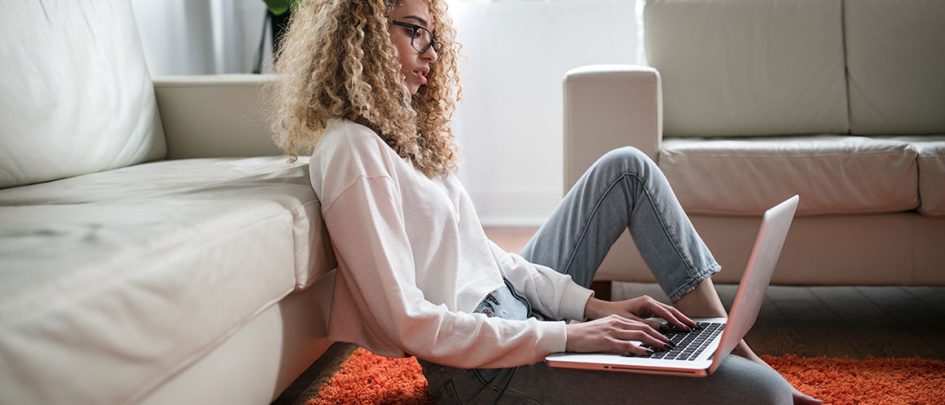






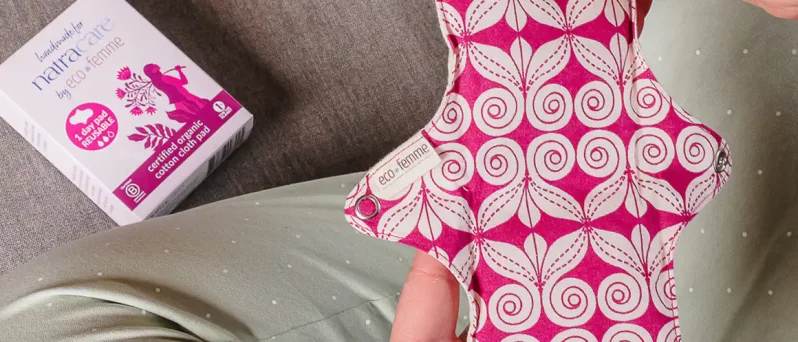
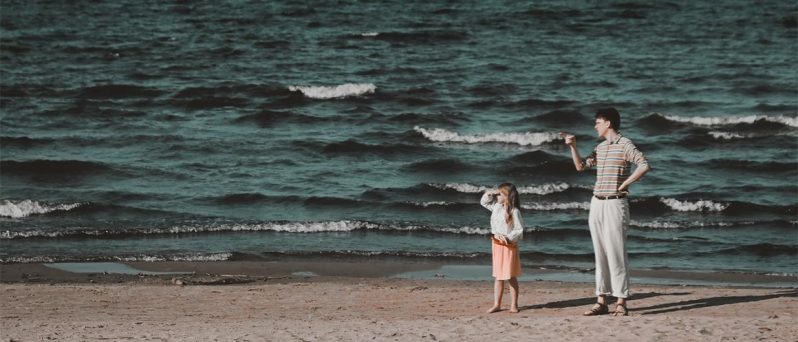
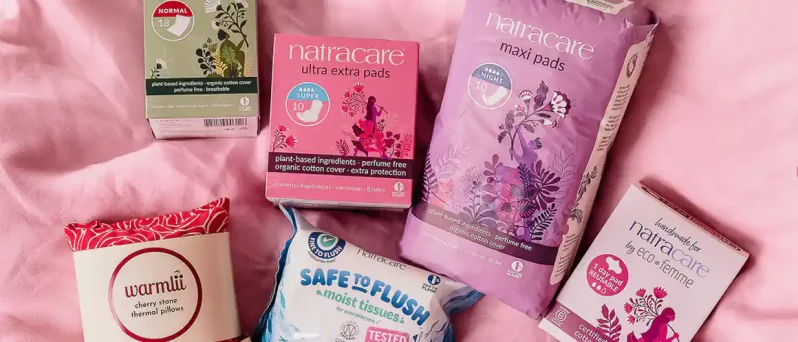
I support plastic-free practices and go to great lengths to avoid plastic. But why is Natracare calling itself plastic free when the nonapplicator tampons are wrapped in plastic? It’s a better brand than most, but saying it’s “plastic free” is greenwashing and deceptive! I bought a box of Natracare tampons marked as “plastic free” only to discover that they’re not. That’s dishonest marketing, and I won’t buy the tampons again.
Hi Sara, our non-applicator tampons are legally obliged to have plastic wrapping (this is widely recyclable) to ensure they are kept at a hygienic standard and to hold the shape of the cotton before use. We aim to be entirely transparent about all the materials we use and would never intentionally greenwash – we find this a reprehensible practise. Natracare is plastic free by design and we only use plastic in our packaging where it is absolutely essential to do so for safety reasons. All natracare products in themselves are plastic free and compostable.